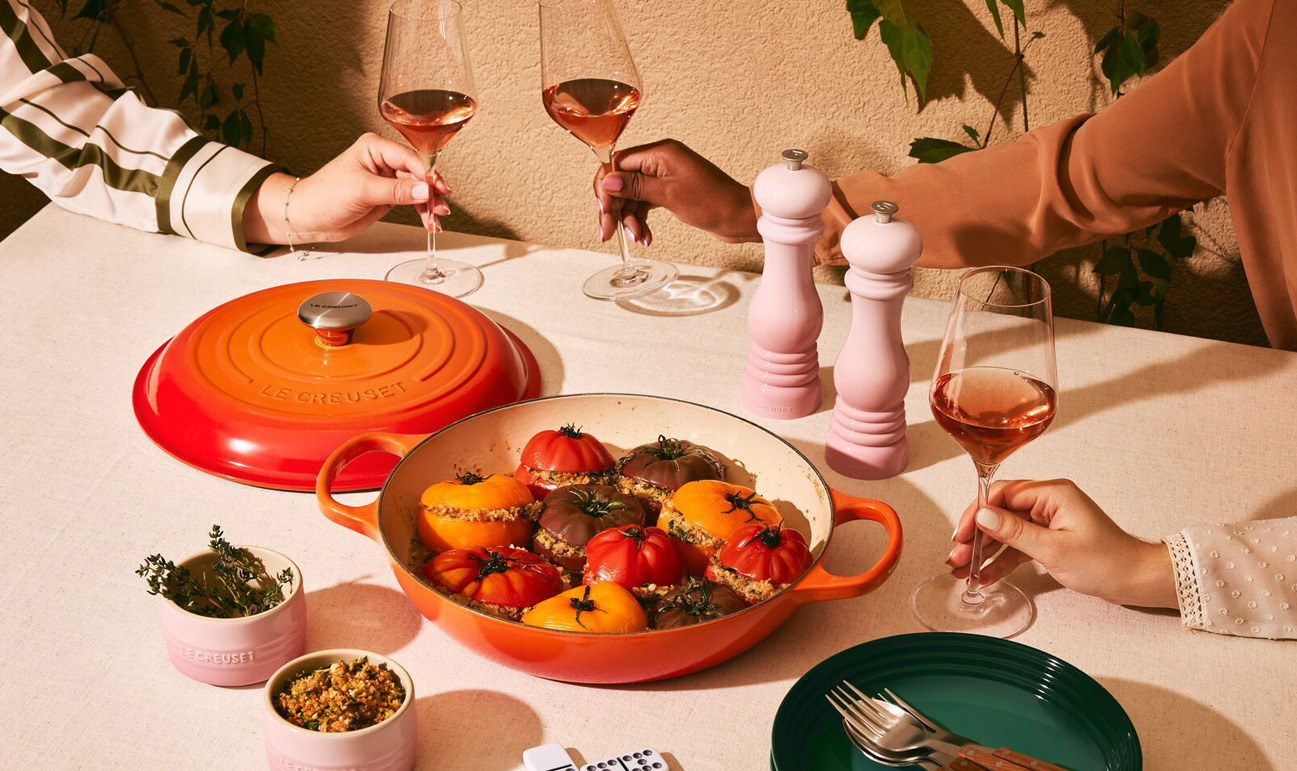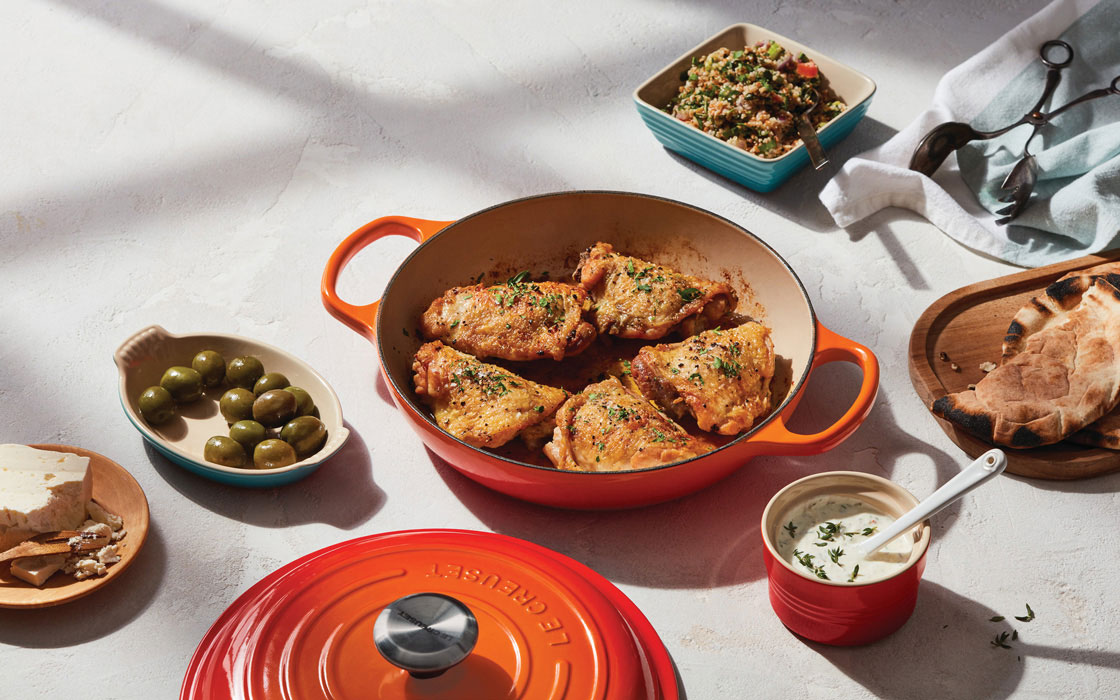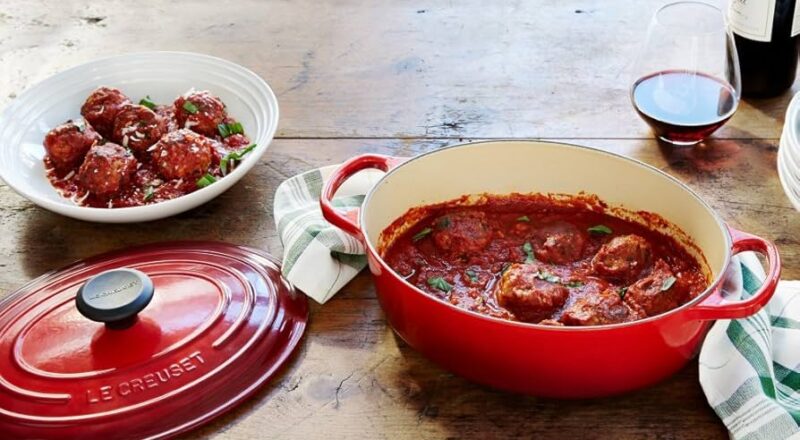When it comes to outfitting your kitchen with the best tools, the choice between a cast iron braiser vs aluminum cookware can be daunting. Both materials have their own pros and cons. Understanding these can help you make an informed decision that suits your cooking style. The debate about cast iron braiser vs aluminum cookware is especially relevant for kitchen professionals seeking quality and durability.

The Appeal of Cast Iron Braisers
Cast iron has been a staple in kitchens for centuries. Known for its durability and heat retention, a cast iron braiser is a versatile tool. Its perfect for browning, braising, and even baking. However, it can be heavy and requires proper maintenance to prevent rusting.
Benefits of Using Cast Iron
One of the main advantages of cast iron is its ability to maintain heat. This makes it ideal for slow-cooking dishes that need even cooking temperatures. Additionally, cast iron is incredibly durable, often lasting for generations if cared for properly.
Drawbacks of Cast Iron
While cast iron has many benefits, it also has its downsides. The weight can be cumbersome, especially for those with mobility issues. Maintenance is another consideration, as cast iron must be seasoned to prevent rust and maintain its non-stick surface.
The Advantages of Aluminum Cookware
On the other hand, aluminum cookware is prized for its lightweight nature and excellent heat conductivity. This makes it a favorite for those who prefer quick heating and cooling during cooking.
Benefits of Aluminum
Aluminum is much lighter than cast iron, making it easier to handle. Its high thermal conductivity allows for quick and even heat distribution, which is advantageous for frying or sauting.
Drawbacks of Aluminum
However, aluminum is not as durable as cast iron and can warp over time. It can also react with acidic foods, which may alter the taste of your dishes unless it is coated with a non-stick surface or anodized.
Comparing Heat Conductivity
When considering cast iron braiser vs aluminum cookware, heat conductivity is a crucial factor. Aluminum heats up quickly and evenly, which is excellent for precise cooking. In contrast, cast iron takes longer to heat but retains heat exceptionally well, which is perfect for slow cooking.
Durability and Maintenance
Durability is another important aspect to consider. Cast iron is renowned for its robustness and longevity. With proper care, it can be a lifelong investment. In contrast, aluminum is less durable and prone to warping. However, it requires less maintenance compared to cast iron.
How to Care for Cast Iron
Caring for a cast iron braiser involves regular seasoning to maintain its non-stick surface. It is also important to clean it properly to avoid rust. For more detailed cleaning tips, you can visit cast iron care.
Maintaining Aluminum Cookware
Aluminum cookware requires less maintenance. However, it should be washed carefully to prevent scratches, especially if it has a non-stick coating.
Cooking with Cast Iron and Aluminum
Both materials have their place in the kitchen. Cast iron is ideal for recipes that require steady heat, such as stews and braises. You can explore some exciting recipes at braising recipes. On the other hand, aluminum cookware excels in tasks that require quick heat changes, like sauting and frying.
Popular Dishes for Cast Iron
Some popular dishes for cast iron include casseroles, roasts, and even baked goods. The ability to go from stovetop to oven makes it versatile.
Using Aluminum for Quick Meals
Aluminum is great for quick meals that require rapid cooking, such as stir-fries and omelets. Its responsiveness to heat changes is beneficial for these types of dishes.
Cost Considerations
Price is always a consideration when choosing cookware. Cast iron products are generally more expensive but can be a worthwhile investment due to their longevity. In contrast, aluminum cookware is more affordable but may need to be replaced more often.
Environmental Impact
Considering the environmental impact, cast iron is often seen as more sustainable due to its durability. Aluminum production is energy-intensive, but it is also highly recyclable.
Sustainability of Cast Iron
Cast iron’s longevity makes it a sustainable choice. It can last for generations, reducing the need for frequent replacements.
Recyclability of Aluminum
Aluminum is one of the most recyclable materials, which helps offset its environmental impact during production.

FAQs
Q: Can I use a cast iron braiser for frying?
A: Yes, a cast iron braiser can be used for frying, offering excellent heat retention. For more on this, check out cast iron frying.
Q: Does aluminum cookware affect the flavor of food?
A: Aluminum can react with acidic foods, which might alter flavor unless it has a protective coating.
Q: Is cast iron suitable for all types of cooktops?
A: Yes, cast iron is versatile and can be used on all cooktops, including induction.
In conclusion, both cast iron braiser vs aluminum cookware have their unique advantages. The choice depends on your cooking needs, preferences, and lifestyle. Whether you prefer the durability of cast iron or the lightness of aluminum, both can be valuable additions to your kitchen.
This article contains affiliate links. We may earn a commission at no extra cost to you.

